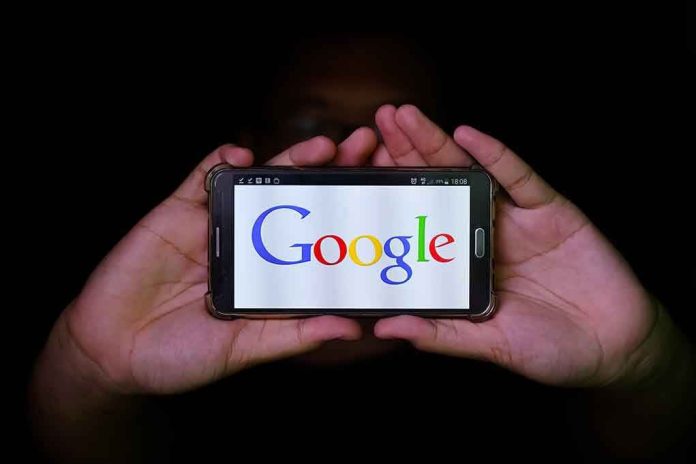
Alphabet’s admission that Biden officials pressured Big Tech to censor Americans has ignited outrage among free speech advocates and renewed calls to rein in government overreach.
Story Snapshot
- Alphabet Inc. admitted to Congress it censored content at the urging of Biden administration officials, even when posts didn’t violate company policies.
- Google will now allow previously banned YouTube accounts, targeted during COVID-19 and 2020 election debates, to apply for reinstatement.
- Congressional investigations are intensifying into possible government collusion with tech giants to suppress political speech.
- This unprecedented admission fuels concerns over threats to the First Amendment and the independence of private platforms.
Alphabet’s Public Admission of Government Pressure
On September 23, 2025, Alphabet Inc.—the parent company of Google and YouTube—formally acknowledged in a letter to Congress that its platforms removed or suppressed content following sustained pressure from senior Biden administration officials. The company confirmed that certain YouTube accounts and posts were banned, not because they violated internal standards, but due to persistent outreach from the White House regarding materials related to COVID-19 and the 2020 presidential election. This direct admission comes after years of speculation and mounting evidence of coordination between government officials and Big Tech executives.
Alphabet’s letter underscored the constitutional dangers posed by such interference, stating, “It is unacceptable and wrong when any government, including the Biden administration, attempts to dictate how the company moderates content…” The platform’s leadership claims to have resisted these efforts on First Amendment grounds, yet the letter concedes that some moderation actions were directly influenced by external pressure. This revelation validates long-standing concerns among conservatives and free speech advocates that federal officials were undermining the independence of private companies and chilling lawful political discourse.
Censorship, Policy Reversal, and the Path Forward
The timeline reveals a systematic campaign spanning 2021 through 2024, in which Biden administration personnel repeatedly contacted YouTube and Google executives to urge content removal. Notably, Alphabet’s policy reversal now allows previously banned accounts, including those of high-profile conservative commentators, to apply for reinstatement if their bans resulted from the now-abolished COVID-19 or election-related policies. This move follows similar disclosures from Meta (Facebook) in 2023, where company officials also described pressure from the same administration. The Congressional Judiciary Committee, led by Chairman Jim Jordan, is expanding its investigation to determine the full extent of government influence and whether these acts crossed constitutional boundaries.
For years, critics have warned that collusion between government and Big Tech erodes the bedrock of American liberty—open debate and dissent. Lawmakers and legal experts argue that persistent, coordinated outreach by the executive branch risks violating constitutional protections by coercing private actors to silence viewpoints disfavored by those in power. The reinstatement policy may offer some redress for those targeted, but it also signals the need for robust safeguards to prevent future abuses.
Impact on Free Speech, Tech Policy, and Public Trust
Alphabet’s admission has immediate and far-reaching implications. In the short term, previously silenced creators and their audiences may return to the platform, reigniting conversations around pandemic policy, election integrity, and the boundaries of acceptable discourse. Public scrutiny of the relationship between government and Silicon Valley is intensifying, with renewed calls for transparency and legislative reform. Over the long term, this episode sets a precedent for both increased accountability in tech moderation practices and a re-examination of the role government should play in shaping digital speech.
The controversy also deepens political divides, fueling partisan debates over the role of technology in American democracy. Free speech advocates view Alphabet’s confession as vindication of their warnings about government overreach, while public health and election officials defend coordination as necessary to combat misinformation. Nonetheless, the clear consensus among legal scholars is that the First Amendment prohibits government actors from coercing private companies to suppress lawful speech, regardless of the policy goals at stake.
Congressional Oversight and the Future of Digital Speech
Congressional investigations into tech censorship and government influence are expected to intensify in the coming months. Lawmakers are examining whether executive branch pressure amounted to an unconstitutional chilling of speech and what legislative remedies are appropriate to protect the independence of digital platforms. As previously banned accounts are reinstated and debate returns to YouTube, Americans are reminded of the fragility of free expression and the ongoing need to defend core constitutional values against encroachment—no matter who holds the reins of government.
While Alphabet’s policy change is a step toward restoring trust, the episode serves as a cautionary tale: when government and Big Tech align to control what Americans can say and hear, the very foundation of democracy is threatened. The outcome of these investigations and policy reforms will shape the future of free speech in the digital public square.
Sources:
Google to reinstate banned YouTube accounts censored for political speech – Fox News Digital





